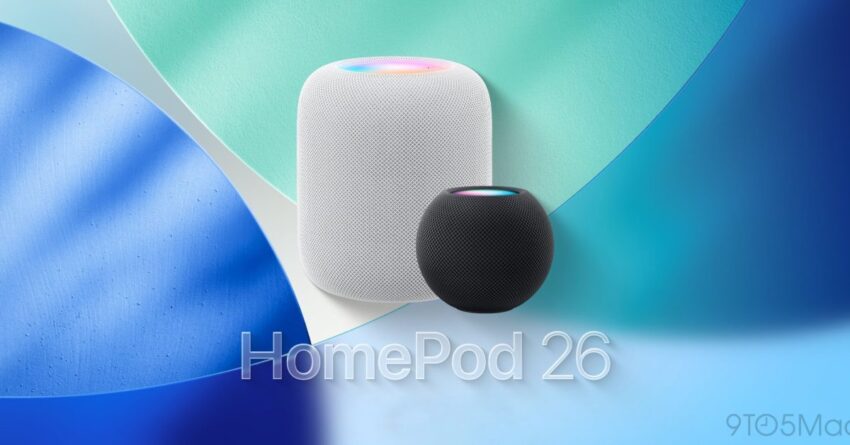
the homepod becomes a better smart speaker Apple’s HomePod is set to receive significant enhancements that aim to improve its functionality and user experience, despite receiving minimal attention during the recent Apple event.
the homepod becomes a better smart speaker
Overview of the HomePod’s Current Position
Since its initial launch, the HomePod has carved out a niche in the smart speaker market, primarily appealing to Apple enthusiasts and users deeply integrated into the Apple ecosystem. However, it has faced stiff competition from other smart speakers, particularly those from Amazon and Google, which offer a broader range of functionalities and integrations. The HomePod’s premium pricing and limited third-party app support have also contributed to its mixed reception.
As Apple continues to innovate and refine its product offerings, the HomePod’s role within the smart home landscape remains crucial. The recent announcement of a software update indicates that Apple is not abandoning its home speaker lineup, even as rumors swirl about a potential HomePod mini 2. This update, scheduled for release next week, introduces two notable features that aim to enhance the overall user experience.
New Features in the Upcoming Software Update
1. Enhanced Voice Recognition
One of the standout features of the upcoming software update is enhanced voice recognition capabilities. This improvement is particularly significant for users who rely on voice commands to control their smart home devices, play music, or access information. The HomePod has always been equipped with Siri, Apple’s virtual assistant, but the new update aims to make interactions more seamless and intuitive.
With the enhanced voice recognition, the HomePod will be better equipped to understand commands in noisy environments, making it easier for users to interact with the device without having to raise their voices. This feature is especially beneficial for households with multiple members or pets, where background noise can often interfere with voice commands.
Moreover, the update is expected to improve the HomePod’s ability to recognize different voices. This means that family members can receive personalized responses based on their unique voice profiles. For example, if one family member asks for their music playlist, the HomePod will be able to identify whose playlist it is and respond accordingly. This level of personalization not only enhances the user experience but also encourages more frequent use of the device.
2. Improved Smart Home Integration
The second major enhancement in the software update is improved smart home integration. As smart home technology continues to evolve, users are increasingly looking for devices that can seamlessly connect and control various aspects of their homes. The HomePod has traditionally served as a hub for Apple’s HomeKit ecosystem, but the new update aims to expand its capabilities further.
With the improved integration, users will be able to control a wider range of smart home devices directly through the HomePod. This includes not only lights and thermostats but also security systems, cameras, and other IoT devices. The update is expected to streamline the process of adding new devices to the HomeKit ecosystem, making it easier for users to expand their smart home setups.
Additionally, the HomePod will likely receive updates that enhance its compatibility with third-party smart home devices. This move is crucial as consumers increasingly seek versatility in their smart home solutions. By allowing the HomePod to control a broader array of devices, Apple is positioning itself as a more competitive player in the smart home market.
Implications of the Software Update
The introduction of these two features is not just about enhancing the HomePod; it reflects Apple’s broader strategy in the smart home market. As competition intensifies, particularly from Amazon’s Echo and Google’s Nest products, Apple must ensure that its offerings remain relevant and appealing to consumers.
Enhanced voice recognition and improved smart home integration could lead to increased adoption of the HomePod among users who may have previously opted for competitors’ products. By addressing common pain points—such as voice command accuracy in noisy environments and the ability to control a diverse range of smart home devices—Apple is making a concerted effort to enhance user satisfaction and loyalty.
Stakeholder Reactions
Reactions to the announcement of the software update have been mixed, reflecting the diverse opinions within the tech community. Some industry analysts view the enhancements as a positive step forward for the HomePod, arguing that they address critical shortcomings that have hindered its growth. Others, however, remain skeptical about whether these updates will be enough to sway consumers who are already invested in other ecosystems.
For instance, tech reviewers have pointed out that while the HomePod’s sound quality is superior to many competitors, its functionality has lagged behind. The new features may help bridge this gap, but whether they will be sufficient to attract new users remains to be seen. Additionally, some users have expressed frustration over the lack of third-party app support, which continues to be a significant limitation for the HomePod.
Context: The Future of the HomePod
As Apple prepares to roll out these updates, the future of the HomePod remains uncertain. The anticipated HomePod mini 2 has yet to be officially announced, and many consumers are eager to see how Apple plans to evolve its home speaker lineup. The introduction of new features is a positive sign, but it raises questions about the company’s long-term strategy in the smart speaker market.
Apple has historically been cautious in its approach to new product categories, often prioritizing quality and user experience over rapid expansion. This philosophy has served the company well in many areas, but the fast-paced nature of the smart home market may require a more aggressive stance. As competitors continue to innovate and expand their offerings, Apple must remain vigilant to ensure that the HomePod does not become an afterthought.
Conclusion
The upcoming software update for the HomePod represents a significant step forward in enhancing its functionality and user experience. With improved voice recognition and better smart home integration, Apple is addressing some of the key challenges that have hindered the HomePod’s growth. While the future of the HomePod remains uncertain, these enhancements could help solidify its position within the competitive smart speaker market. As consumers increasingly seek devices that offer seamless integration and personalization, the HomePod’s new features may prove to be a game-changer for Apple.
Source: Original report
Was this helpful?
Last Modified: September 10, 2025 at 7:39 pm
1 views














